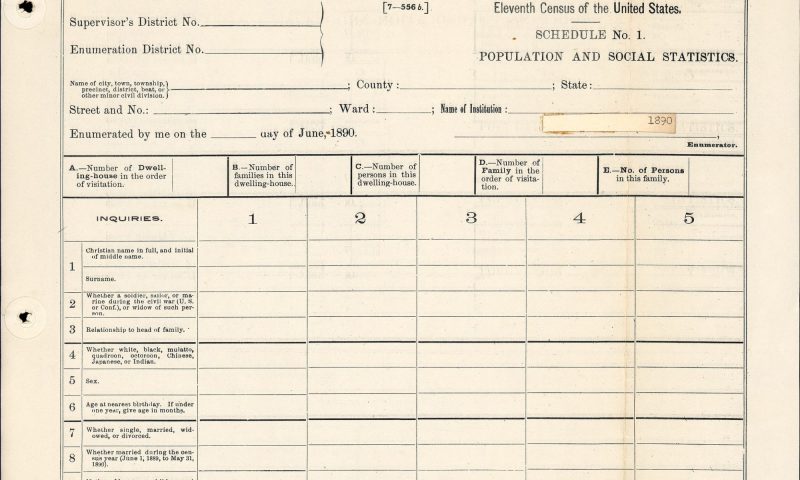By Msgr. Charles Pope, July 10, 2019
In the Office of Readings this week we read about a census conducted by King David that caused great harm (2 Samuel 24). Joab, David’s general, strongly cautioned him not to take the census, but David insisted. When the census had been completed, the prophet Gad informed David that God was angry and intended to punish him and all Israel. God offered David his choice of punishments: a three-year famine, three months of military fighting from Israel’s enemies, or three days of pestilence. David chose the pestilence, figuring that it was better to be in God’s hands than those of an enemy. About 70,000 people died during those three days.
This raises two central questions:
What is wrong with a census?
Why was all Israel punished for something David did?
What is wrong with a census?
The first answer can be found by focusing David’s lack of trust. God had called David to trust in Him—not in mankind, not in numbers. We tend to rely too heavily on numbers, thinking that something is good, or right, or successful if a lot of people support it. Of this tendency we must be very careful. Is our power or rectitude rooted in numbers, in popularity, in profit, or in God? In calling for a count of his people, David seems to be seeking confidence in numbers rather than in God; this is a sin.
David may also be guilty of pride. It could well be that he was proud that he had amassed such a large number of people in reuniting Israel and Judah and in conquering the Philistines, the Hittites, and others. Taking a census was perhaps a way of patting himself on the back, of making a name for himself. The numbers are quite impressive—so impressive that we moderns doubt them: 800,000 men fit for military service in Israel and 500,000 in Judah. If women, children, and those men too old or frail for service had been included, the number would probably have been close to 5 million. (These figures seem so high that they are a source of great debate among biblical scholars about biblical enumeration.) Suffice it to say that David ruled over a populous nation. His taking of a census likely indicates that he was proud of his accomplishments and wanted it acknowledged by his contemporaries and recorded in the annals of history: David, king of multitudes!
Others point out the sinfulness of counting God’s people. These are not David’s people to count; they are God’s. Because counting hints at accomplishment and control, David sins in trying to know a number that is none of his business. This is a number that is for God alone to know, for He numbers His people and calls them by name (cf Gen 15:15).
Finally, the results of a census can be used sinfully. Governments can and sometimes have used the information to oppress the people. The census David commissioned provided him with the number of men “fit for military service.” In the ancient world, a census was often taken to facilitate a military draft. It was also typically used as a basis for exacting taxes. Finally, kings used it to measure their power and to manipulate and coerce based on that power.
Even in our own time as we know, the taking of the official U.S. census every ten years is often surrounded by power struggles, as the results can lead to shifts in electoral boundaries, increases or decreases in congressional representation, changes in tax policy, shifting of spending priorities, and the pitting of different ethnic and racial groups against one another. A lot of trouble can be tied back to the results of the census; numbers can be powerful. Those that have “the numbers” get seats at the table while those who do not have to wait outside.
Note: I am not taking a side on the citizenship question that is currently being debated in the U.S. The point I am making here is much broader (and older) than the current disagreement.
In amassing numbers, David increases his power and his ability to manipulate the people in sinful or unjust ways.
Exactly where David’s sin lay—a lack of trust, pride, acting as if they were his people rather than God’s, amassing power, or in some combination of all these things—is not made clear in the passage. God is clear, though, in letting David know that he has sinned and seriously so.
Why was Israel punished for something David did?
This question is much more difficult to answer than was the first one. First, we ought to admit that there are some mysterious aspects and we may not be able to know the answer fully. All we can do is to offer some speculation.
The most common answer emphasizes that Israel was not sinless in the matter. The census story begins as follows: The Lord’s anger against Israel flared again and incited David … to number Israel and Judah. For some undisclosed reason, God was angry with the whole nation and therefore permitted David to fall into this sin. Perhaps the result of a census was also a point of national pride, with the people thinking, “Look how big, prosperous, and powerful we have become!” This is mere speculation, but the point is that according to the text, Israel had angered the Lord.
It is important to note that modern Western notion of individualism is not a biblical one. We tend to think that what we do is our business and what others do is theirs, and thus we are outraged at the idea that many would suffer for the sins of one. In the biblical worldview, though, we are all interconnected: There should be no division in the body, but that its parts should have equal concern for each other. If one member suffers, every member suffers; if one member is honored, every member rejoices. Now you are the body of Christ, and each one of you is a member of it (1 Cor 12:25-27). Dr. Martin Luther King, Jr. once said, “Injustice anywhere is a threat to justice everywhere.” This is the biblical vision.
The decisions we make affect the people around us, whether for better or for worse. Even what we call “private” sins set loose evil, reduce goodness, and increase the likelihood of future and more public sins. We are our brother’s keeper and what we do or fail to do affects others.
To those who would say that God is not being “fair” in punishing Israel for what David did, there must be this strong advice: Be very careful before you ask God to be fair. If God were fair, we would all be in Hell right now. Rather, we should seek His mercy.
God knows how to shepherd us rightly. There are times when tough measures are needed. We do not know the precise nature of Israel’s sin, but God’s anger at Israel is His passion to set things right. He is getting us ready for the “Great Day.”







